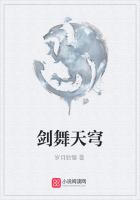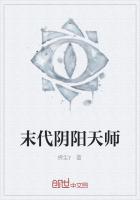While he was inactive at Seville, and the great squadron was being prepared which Ovando was to command, he wrote what is known as the "Book of Prophecies," in which he attempted to convince the Catholic kings of the necessity of carrying forward the enterprise which he proposed. He urged haste, because he believed the world was only to last a hundred and fifty-five years longer; and, with so much before them to be done, it was necessary that they should begin.
He remembered an old vow that he had undertaken, that, within seven years of the time of his discovery, he would furnish fifty thousand foot soldiers and five thousand horsemen for the recovery of the Holy Sepulchre. He now arranged in order prophecies from the Holy Scripture, passages from the writings of the Fathers, and whatever else suggested itself, mystical and hopeful, as to the success of an enterprise by which the new world could be used for the conversion of the Gentiles and for the improvement of the Christianity of the old world.
He had the assistance of a Carthusian monk, who seems to have been skilled in literary work, and the two arranged these passages in order, illustrated them with poetry, and collected them into a manuscript volume which was sent to the sovereigns.
Columbus accompanied the Book of Prophecies with one of his own long letters, written with the utmost fervor. In this letter he begins, as Peter the Hermit might do, by urging the sovereigns to set on foot a crusade. If they are tempted to consider his advice extravagant, he asks them how his first scheme of discovery was treated. He shows that, as heaven had chosen him to discover the new world, heaven has also chosen him to discover the Holy Sepulchre. God himself had opened his eyes that he might make the great discovery, which has reflected such honor upon them and theirs.
"If his hopes had been answered," says a Catholic writer, the modern question of holy places, which is the Gordian knot of the religious politics of the future, would have been solved long ago by the gold of the new world, or would have been cut by the sword of its discoverer. We should not have seen nations which are separated from the Roman communion, both Protestant and Pantheistic governments, coming audaciously into contest for privileges, which, by the rights of old possession, by the rights of martyrdom and chivalry, belong to the Holy Catholic Church, the Apostolic Church, the Roman Church, and after her to France, her oldest daughter."Columbus now supposed that the share of the western wealth which would belong to him would be sufficient for him to equip and arm a hundred thousand infantry and ten thousand horsemen.
At the moment when the Christian hero made this pious calculation he had not enough of this revenue with which to buy a cloak,"This is the remark of the enthusiastic biographer from whom we have already quoted.
It is not literally true, but it is true that Columbus was living in the most modest way at the time when he was pressing his ambitious schemes upon the court. At the same time, he wrote a poem with which he undertook to press the same great enterprise upon his readers. It was called "The End of Man," "Memorare novissima tua, et non peccabis in eternum."In his letter to the king and queen he says, "Animated as by a heavenly fire, I came to your Highnesses; all who heard of my enterprise mocked it; all the sciences I had acquired profited me as nothing; seven years did I pass in your royal court, disputing the case with persons of great authority and learned in all the arts, and in the end they decided that all was vain. In your Highnesses alone remained faith and constancy. Who will doubt that this light was from the Holy Scriptures, illumining you, as well as myself, with rays of marvellous brightness."It is probable that the king and queen were, to a certain extent, influenced by his enthusiasm. It is certain that they knew that something was due to their reputation and to his success. By whatever motive led, they encouraged him with hopes that he might be sent forward again, this time, not as commander of a colony, but as a discoverer. Discovery was indeed the business which he understood, and to which alone he should ever have been commissioned.
It is to be remembered that the language of crusaders was not then a matter of antiquity, and was not used as if it alluded to bygone affairs. It was but a few years since the Saracens had been driven out of Spain, and all men regarded them as being the enemies of Christianity and of Europe, who could not be neglected. More than this, Spain was beginning to receive very large and important revenues from the islands.
It is said that the annual revenues from Hispaniola already amounted to twelve millions of our dollars. It was not unnatural that the king and queen, willing to throw off the disgrace which they had incurred from Bobadilla's cruelty, should not only send Ovando to replace him, but should, though in an humble fashion, give to Columbus an opportunity to show that his plans were not chimerical.














